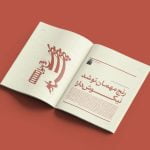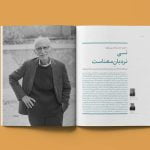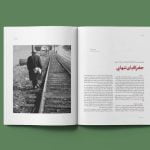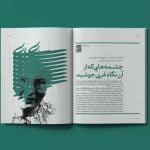Annemarie Schimmel (1922-2003), who spent most of her life reading and living with Islamic and particularly Sufi texts from the perspective of a believer and an academic, introduced the thoughts of Rumi in several works, both German and English, notably “The Triumphal Sun: A Study of the Works of Jalaloddin Rumi” (London: Fine Books, 1978; London: East-West Publications, 1980; 2nd ed., Albany, NY: SUNY Press, 1993) and “I am Wind, You are Fire: The Life and Work of Rumi” (Boston, MA: Shambhala, 1992). Her wide reading in the sources of Indian Islam and Sufism gave her an expansive perspective on what Rumi has meant in the Muslim world, a theme she treated often, including but not limited to a chapter from The Triumphal Sun and also in her essay “Mawlana Rami: Yesterday, Today and Tomorrow”. Her study “Friedrich Riickert: Lebensbild und Einfiihrung in sein Werk” (Freiburg im Breisgau: Herder, 1987) has detailed Rumi’s influence on German Romanticism. Beyond this, her intimate familiarity with Rumi came from repeated reading of his poems over a long period of time, beginning with her translations of his poetry in 1948 and her study of his imagery in “Die Bildersprache Dschelaladdin Rumis” (vol. 2 of Beitrage zur Sprach- und Kulturgeschichte des Orients; Walldorf-Hessen: Verlag fiir Orientkunde Dr. H. Vorandran, 1949). She has translated not only the poems, but also the “Discourses” (Fihe ma fih) into German, which appeared as “Von Allem und vom Einen” (Munich: Diederichs, 1988).
Schimmel’s commitment to Rumiology was longstanding. She was the first European to address the gathering of members of parliament at the commemoration of the anniversary of Rumi’s birth on December 17, 1954 in Konya.
Schimmel provided a long investigation into Rumi’s theology in her Triumphal Sun, which offers copious citations from Koran, Hadith and the prose and poetry of Rumi. Her grounding of Rumi in the specifics of the Islamic tradition is quite useful, especially as a corrective to portrayals of Rumi as a non-denominational mystic. However, one sometimes gets the sense that Schimmel seizes on a wide variety of different statements or allusions and presents them as representations of fixed or elaborated doctrines, whereas often in the particular context in which Rumi employs them, they seem to be passing allusions to symbols, beliefs and debates within the Islamic tradition, rather than arguments or considered positions on the issues raised. Indeed, as a preacher, Rumi tends to employ such allusions to rhetorical effort to embroider his ethical points.
Nevertheless, Schimmel, like “Abdul Hakim before her, tried to isolate several important issues that Rumi has elaborated in an original or consistent manner, including the station of man, Revelation and the role of the prophets, the progression of matter and spirit through the world of existence, the nature of love and the function of prayer. She has provided us with extremely useful resources in her Triumphal Sun and creative yet learned ways of approaching Rumi.
Reference: Lewis, Franklin D. Rumi: Past and Present, East and West: The life, Teaching and poetry of Jalal Al-Din Rumi. Oxford: One World Publications (UK), 2000, p. 539-540.










